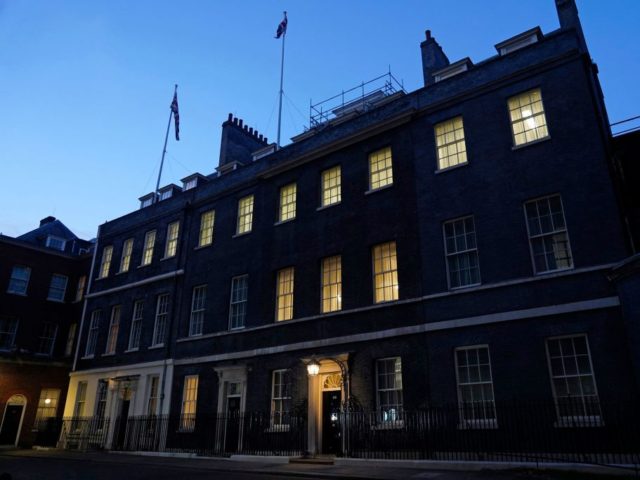UK Prime Minister Boris Johnson told the house “I’m sorry” in the wake of the publication of the long-anticipated Sue Gray report, but switched immediately to a combative tone when facing the leader of the opposition, telling Labour leader Starmer that he had failed to prosecute notorious VIP paedophile Jimmy Saville while serving as Director of Public Prosecutions.
Speaking in the House of Commons after receiving the Sue Gray ‘report’ — actually an update document pending the conclusion of police investigations before the full publication of her report at an undisclosed future date — UK Prime Minister kicked off his remarks by saying “sorry” and that he accepted Gray’s failings.
Johnson said: “Firstly I want to say sorry, and I’m sorry for the things we simply didn’t get right and also sorry for the way this matter has been handled. It’s no use saying this or that was within the rules, it’s no use saying people were working hard… But it isn’t enough to say sorry. This is a moment when we must look at ourselves in the mirror and we must learn… I of course accept Sue Gray’s general findings in full.”
Apparently latching onto Gray’s finding that Downing Street’s staffing numbers had swelled in size considerably without the management structure developing with this increase, consequently leaving blurred lines of responsibility and oversight, the Prime Minister made much of his intention to reform the heart of government as the primary lessons-learnt exercise.
Outlining the changes to come, the Prime Minister said there was going to be created an “Office of the Prime Minister” — until now a duty shared by 10 Downing Street and the Cabinet Office — which he said should fix “the fragmented and complicated leadership structures of Downing Street”. He also said that the codes that govern behaviour would be revised.
In all, Johnson promised, “I get it, and I will fix it.”
The contrite tenor of Johnson’s remarks changed in tone when the time came to respond to questions from the house, however. First to respond, as convention dictates, was leader of the official opposition party, Sir Kier Starmer. While his speech has been praised as one of the best of his career — a low bar, perhaps, given the generally minimal impact he is reckoned to make in parliamentary debates — Johnson struck back with venom, bringing up Starmer’s record as the country’s top prosecutor before he joined Parliament.
Referring to Starmer’s time as the Director of Public Prosecutions — a very senior legal role for which he received the title of ‘Sir’ — Johnson lambasted the prosecutor’s office for “prosecuting journalists and failing to prosecute Jimmy Savile” — a notorious celebrity pedophile who used his access to the high reaches of British society to abuse without punishment for decades. The extent to which Starmer is really responsible for the decision of the CPS to not prosecute Savile when it had the chance to do so under his leadership is contested, and political observers have called the comments a low blow.
Nevertheless, the comparison as a diversionary tactic is potentially a fruitful one — in pointing to a widely-discussed and hotly contested example where Starmer led a large and complex organisation where extremely controversial decisions were made, perhaps without his full knowledge or consent, the Prime Minister may be making an oblique reference to his own position.
While the leader of the left-wing opposition Sir Keir Starmer would have hoped to have landed a mortal blow on the Prime Minister with his solemn and damning response, actually it may have been from Boris Johnson’s predecessor Theresa May that the most effective remarks came. Following the Labour leader, May said the public should expect the Prime Minister to set an example to the nation, asking “So either my Right Honourable friend had not read the rules, or didn’t understand what they meant and others around him, or they didn’t think the rules applied to them. Which was it?”.
As things now stand, further official updates on the investigation into a string of parties understood to be held at and around Downing Street during lockdown will be on hold until the Metropolitan Police have concluded their own investigation. While the opposition insists the Prime Minister resign, actually the lion’s share of the power in this situation remains with Boris Johnson’s party colleagues, who can call for a Vote of No Confidence in his leadership.
Such a move is risky for would-be rebels, although there is potentially everything to gain for a would-be usurper. A failed move against the Prime Minister would, by the terms of the Conservative Party’s own rules, leave Johnson immune to another challenge for 12 months and exposes the rebels publicly. Disunity in the party also benefits the opposition, a factor which has been cited in recent weeks as one of those keeping party rebels quieter than they otherwise would be.
Toppling the government could also cost rebels their jobs, according to dark hints by Johnson loyalist Jacob Rees-Mogg, who has said that given the abysmal performances of former Prime Minister Gordon Brown and Theresa May, who failed to seek a fresh mandate from the people after assuming the Prime Minister’s job, there really should be a snap election if Johnson fell. Given the lead Labour presently enjoys in the polls, many Conservative MPs could lose their jobs as the payback for bringing down the Prime Minister.

COMMENTS
Please let us know if you're having issues with commenting.